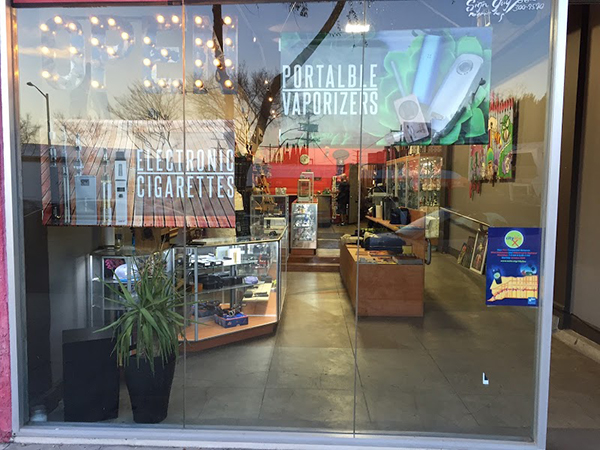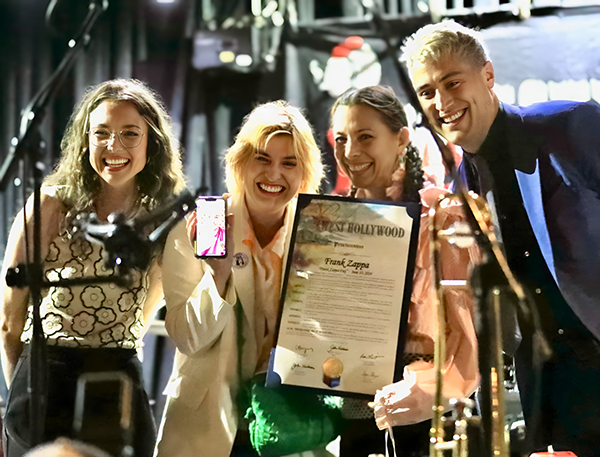By Juliet Bennett Rylah
Contributing Writer
WEST HOLYWOOD — The City Council has voted 4-1 to ban the sale of most flavored tobacco products in the city and to bar retailers from accepting coupons or offering discounts on any tobacco products.
The ban on coupons and discounts is effective immediately, while the ban on flavored tobaccos takes effect Sept. 15, giving retailers time to sell off remaining stock.
The ban on flavored tobacco is meant to prevent young people from getting hooked on tobacco products. According to the Center for Disease Control and Prevention, most cigarette smokers start when they are young. Nine of 10 smokers first start before age 18; 99% of cigarette smokers start by age 26.
Opposition to the ban came from both small business owners and hookah users. All hookah tobacco is flavored, but several callers during public comment pointed out that hookah tobacco can’t be rolled into a cigarette or smoked with a cannabis pipe.
It can only be used in a hookah, a large, unportable device that would be difficult for youth to conceal on campus or at home.
For the adults who enjoy hookah, it can be an important cultural tradition. Rima Khoury of the National Hookah Community Association called in during public comment on the ordinance to say that hookah is a “uniquely social custom that is often seen at celebratory events and special occasions” among Middle Eastern cultures, including those who live in West Hollywood.
“Please don’t let our cultural tradition become collateral damage for a problem that is completely unrelated to hookah,” she said.
The City Council ultimately decided to exempt hookah lounges from the ban, provided any flavored tobacco purchased is consumed onsite.
Smoke shop owners in West Hollywood were also opposed, saying the law would put them out of business. Chris Teagardin, who owns Teagardins on Santa Monica Boulevard, said flavored tobacco products account for 30-35% of his business, and for as much as 70% for other business owners with whom he spoke. Though he’s been able to weather the pandemic thus far by cutting other costs, he referred to the new ordinance as a “critical hit.”
Smoke For Less owner Mani Merabi argued that smoke shops are tightly regulated by the federal Food and Drug Administration and state, county and city authorities, and don’t sell to underage customers. He said he doesn’t think the ban would mitigate tobacco use among youth, as they could get flavored products outside of West Hollywood’s 1.9 square miles, but would end his business.
“All of our employees reside in West Hollywood,” he said. “Some have been with me for over a decade, and I really don’t know how to tell them they lost their jobs now too, in the pandemic, over something that hasn’t been a problem.
“There’s been no underage sales in this area. Banning the sale will drive people to just drive one city over.”
That one city over could be Los Angeles, but Beverly Hills has already banned the sale of all tobacco products, excluding cigar lounges and hotels selling to guests. The law went into effect Jan. 1, though stores may receive an exemption if they can prove the ban will cause “undue hardship.”
Councilwoman Lauren Meister was the only City Council member to oppose the flavored tobacco ban.
She cited an upcoming statewide vote on the issue.
Last August, Gov. Gavin Newsom signed Senate Bill 793, banning the sale of all flavored tobacco products not covered by the Tobacco Control Act. But in December, that bill was placed on hold after petitioners qualified a referendum for the November 2022 ballot.
Supporters of the ordinance included the Emphysema Foundation of America, the African American Tobacco Control Leadership Council and the American Cancer Society.
Many argued it was more than a health issue, but a social justice issue, too. In its letter, the American Cancer Society wrote that “targeted marketing to communities of color, low-income communities and LGBTQ communities adds to the health disparities in populations already impacted by social inequities.”
Studies have shown that flavored products, including e-cigarettes, are more appealing to young people than unflavored products. In 2020, 85% of high school students and 74% of middle school students who had used tobacco in the previous 30 days said they had used a flavored product.
Juliet Bennett Rylah is a freelance reporter who covers Hollywood and West Hollywood. She can be reached at jbrylah@gmail.com.













